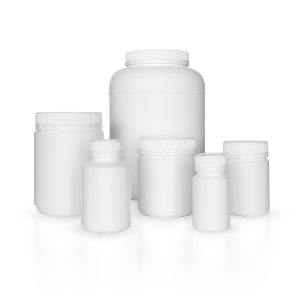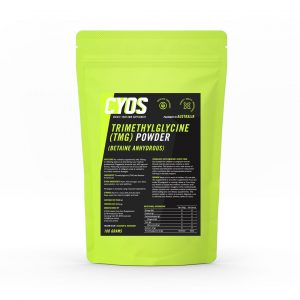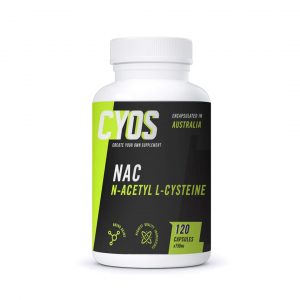


Adaptogens
J J 25 Nov 2019
What Are Adaptogens And How Do They Work?
Share
No matter your social status, what your job is, or your current fitness level, there’s one thing that always gets you: stress.
Stress can come in all shapes and sizes, serious or trivial. While there are various legitimate reasons why stress can be a necessary part of life, especially when it comes to our primal fight or flight instincts, chronic stress does have physical manifestations in the form of neurological, immune, and endocrine abnormalities.
There are many medications and prescription drugs out there that can reduce stress, but these have some serious side effects, especially when used too much. Some can even cause problems with addiction. Fortunately, there is a way to relieve stress naturally and that is through adaptogens.
What are adaptogens? How do adaptogens work? What are examples of adaptogens? Read on to find out.
What are adaptogens?
Adaptogenic herbs or adaptogens are substances that have been recognised therapeutic effects, mainly against stress. These herbs were initially developed and experimented with during World War 2 to enhance the cognitive function of pilots. If successful, these herbs would allow them to fly better, faster, and for longer periods.
Now, adaptogens have become an ingredient category themselves. They can be bought as a standalone ingredient or as part of a nootropic or gym supplement.
So, we know what adaptogens are, but how do adaptogens work?
How do adaptogens work?
Unlike typical gym supplement ingredients, adaptogens don’t directly work on muscles or fat metabolism. Instead, adaptogens work on our adrenal, pituitary, and hypothalamic glands. These glands are directly involved in stress response.
Adaptogens work by tweaking the way the body responds to stress. In the case of weight lifting, adaptogens work by helping the body cope with fatigue and the stress of training for longer periods. This can lead to enhanced endurance and delayed fatigue.
For those who are stressed at work, adaptogens can help users ignore the mental fatigue and allow them to have a more positive perception of the tasks they’re assigned to do.
On top of stress-relieving benefits, adaptogens work by offering neuroprotective benefits, antidepressive effects, improved cognitive function, and increasing attention span.
Popular adaptogens used by athletes and fitness enthusiasts
Knowing how adaptogens work is one thing, but which adaptogens should you choose? There are many adaptogens in the market, each with their own specific functions and benefits. However, the supplement industry likes to use the following herbs more than others:
- Ashwagandha. Ashwagandha is considered the king of adaptogenic herbs. Many agree that ashwagandha has solid evidence to back its claims on it being an anxiolytic (anti-anxiety). It’s also purported for its benefits for people with insomnia, lethargy, and some symptoms of depression.
- Astragalus. Astragalus is a popular Chinese herb with cardioprotective, anti-inflammatory, and even potential longevity benefits.
- Cordyceps. Another Chinese herb, Cordyceps is said to provide anti-aging benefits as well as invigorate users, especially older adults. It’s also been studied for its testosterone-boosting and libido benefits, which explains its popularity in male enhancement products.
- Schisandra. Schisandra is a type of berry commonly used as both adaptogen and performance enhancer. It’s known to have a slight benefit on cortisol levels for athletes, mainly lowering them during and after training. It’s also been cited for its nitric oxide boosting properties. Nitric oxide is what helps the body have more power to lift heavy weights.
- Panax Ginseng. Panax Ginseng is the most researched ginseng. It’s known to provide mood, immune system, and cognitive benefits. There are also some benefits on blood sugar levels, symptoms of menopause, and blood flow.
- Rhodiola Rosea. Many say rhodiola rosea is the second or third most popular adaptogen, right after ashwagandha and panax ginseng. It’s known to exhibit fatigue-reducing properties as well as benefits for mood and brain function. This makes rhodiola an excellent alternative to ashwagandha or even a supporting ingredient in a blend.
How do adaptogens work on fitness and health?
Different types of adaptogens are claimed to do different benefits to both athletes and the average consumer. What does the science about these claims? How do adaptogens work on giving users the benefits they are known for?
1. Anxiety and Stress
When thinking about how adaptogens work, the first thing that comes to mind are their benefits on stress and its many related illnesses such as anxiety. Based on multiple tests and reviews, it seems this particular benefit holds water. In one study, researchers took patients with a history of chronic stress. They were asked to take 300 mg of Ashwagandha twice a day for 60 days. The results showed high doses of ashwagandha safely (meaning without side effects) and effectively improved each patient’s resistance towards stress. The experiment also cited an improved self-assessed quality of life. [1]
2. Testosterone
Testosterone is the key hormone when it comes to fat metabolism, muscle growth, fertility, and overall vigour and strength. There are many ingredients considered as testosterone boosters, such as D-Aspartic Acid and Boron, but some adaptogens can also make a decent case for this claim.
In several studies, adaptogens ashwagandha, rhodiola, ginseng, cordyceps, and schizandra all showed positive results regarding increased testosterone production especially in patients diagnosed with low-testosterone. [2 – 5]
Moreover, their testosterone effects are also increased when used in pairs.
3. Cardiovascular health
In lab tests using heart tissue subjected to stroke damage, results showed improvements upon taking adaptogens like rhodiola. This effect was greatly attributed to the herb’s antioxidative effects, specifically on its active compounds tyrosol and salidroside. [6]
Ashwagandha was also shown to exhibit increased endurance, attributed to improving blood flow and better heart function in patients with a history of congestive heart failure. [7]
4. Exercise experience
Doing high speed and high volume workouts can jack up the cortisol levels in the body. The sudden burst of cortisol can linger during the workout – which can make users tire out faster – and after the workout – which can hamper your overall muscle growth and recovery.
The main functions of adaptogens is to manage and even bring down cortisol levels, allowing users to not only perform better and have a more efficient recovery, but also have a more positive exercise experience.
5. Mood
It’s no secret that stress can play a huge role in what people may currently feel. Generally speaking, the higher the stress, the worse people’s moods can get. However, adaptogens could help by regulating the hormonal changes that happen due to stress. Ginseng, in particular, has been found to not just prevent the occurrence of stress-related psychological diseases, but also suppress bouts of depression and anxiety. [8]
6. Endurance
You can argue what makes training difficult is not the routine itself, but the lack of endurance or the inability to continue with the exercise routine. One of the many reasons athletes give up or struggle during exercise is the stress buildup.
Good scientific evidence has been documented in trails in which Schisandra chinensis increased endurance and mental performance in those prone to fatigue and onset of weakness. This herb works on preventing the decline in energy metabolism brought about by increased cortisol levels. This results in a more efficient energy production that leads to better performance and longer exercise time. [9]
7. Fertility
Research shows stress is inversely related to male and female fertility. [10,11]
In men, testosterone is critical when it comes to sperm production and semen quality. In women, stress is linked with a longer time-to-pregnancy and a risk of infertility.
Adaptogens supports the endocrine system in producing more progesterone, oestrogen, testosterone, and human growth hormone all the while reducing cortisol. When the entire endocrine system works flawlessly, women will have healthier periods, men will have better semen quality, and both will show improvements in libido. Combining all these factors together result in a better physiological environment that supports reproduction.
8. Weight loss
The effect of adaptogens on weight loss are indirect, particularly when it comes to dieting.
Dieting can be a stressful health routine. People force themselves to eat fewer amounts of food, avoid foods they love eating, and overall try to convince themselves that it will get better the next day.
Most people can cope with the kind of stress dieting does. However, some don’t and end up giving in to cravings which then ruin their diet efforts.
Adaptogens can help reduce the stress associated with dieting. Moreover, they can also work on reducing cravings and even function as appetite suppressants. [12]
Summary
Adaptogens are herbs added to supplements either as a standalone ingredient or as part of a workout blend. Depending on the type, adaptogens work on providing benefits for stress, anxiety, mood, depression, fatigue, heart health, weight loss, and even fertility. Studies have repeatedly shown their benefits and their safety with controlled doses in human subjects.
Depending on your goals, you may purchase a single-ingredient product for stress and weight loss or to help you cope with the stress of everyday living. Regardless, adaptogens have the science to back up their claims.
References:
- Chandrasekhar K, Kapoor J, Anishetty S. A prospective, randomized double-blind, placebo-controlled study of safety and efficacy of a high-concentration full-spectrum extract of ashwagandha root in reducing stress and anxiety in adults. Indian J Psychol Med. 2012;34(3):255–262. doi:10.4103/0253-7176.106022
- Lopresti AL, Drummond PD, Smith SJ. A Randomized, Double-Blind, Placebo-Controlled, Crossover Study Examining the Hormonal and Vitality Effects of Ashwagandha ( Withania somnifera) in Aging, Overweight Males. Am J Mens Health. 2019;13(2):1557988319835985. doi:10.1177/1557988319835985
- Li J, Wang J, Shao JQ, Du H, Wang YT, Peng L. Effect of Schisandra chinensis on interleukins, glucose metabolism, and pituitary-adrenal and gonadal axis in rats under strenuous swimming exercise. Chin J Integr Med. 2015;21(1):43-8.
- Leung KW, Wong AS. Ginseng and male reproductive function. Spermatogenesis. 2013;3(3):e26391. doi:10.4161/spmg.26391
- Huang BM, Hsu CC, Tsai SJ, Sheu CC, Leu SF. Effects of Cordyceps sinensis on testosterone production in normal mouse Leydig cells. Life Sci. 2001;69(22):2593-602.
- Sun L, Isaak CK, Zhou Y, et al. Salidroside and tyrosol from Rhodiola protect H9c2 cells from ischemia/reperfusion-induced apoptosis. Life Sci. 2012;91(5-6):151-8.
- Panossian A, Wikman G. Effects of Adaptogens on the Central Nervous System and the Molecular Mechanisms Associated with Their Stress-Protective Activity. Pharmaceuticals (Basel). 2010;3(1):188–224. Published 2010 Jan 19. doi:10.3390/ph3010188
- Lee S, Rhee DK. Effects of ginseng on stress-related depression, anxiety, and the hypothalamic-pituitary-adrenal axis. J Ginseng Res. 2017;41(4):589–594. doi:10.1016/j.jgr.2017.01.010
- Panossian A, Wikman G. Evidence-based efficacy of adaptogens in fatigue, and molecular mechanisms related to their stress-protective activity. Curr Clin Pharmacol. 2009;4(3):198-219.
- Nargund VH. Effects of psychological stress on male fertility. Nat Rev Urol. 2015;12(7):373-82.
- Lynch CD, Sundaram R, Maisog JM, Sweeney AM, Buck Louis GM. Preconception stress increases the risk of infertility: results from a couple-based prospective cohort study–the LIFE study. Hum Reprod. 2014;29(5):1067–1075. doi:10.1093/humrep/deu032
- Chandrasekhar K, Kapoor J, Anishetty S. A prospective, randomized double-blind, placebo-controlled study of safety and efficacy of a high-concentration full-spectrum extract of ashwagandha root in reducing stress and anxiety in adults. Indian J Psychol Med. 2012;34(3):255–262. doi:10.4103/0253-7176.106022
CYOS blog content is for informational and educational purposes only, and should not be considered medical advice, diagnosis or treatment recommendations. Always consult with your doctor or medical professional before using any dietary supplements or if you suspect you have any medical concerns or issues.
Share
SHOP OUR PRE-MADE CAPSULES RANGE
100% Pure • Encapsulated in Australia • Vegetarian Capsules • No Fillers • No Additives • No Binders • No Anti Caking Agents • Allergen Free • No Preservatives • Non GMO
Our best sellers
 Search Products
Search Products
 All Products A-Z
All Products A-Z
 Pre-Made Capsules
Pre-Made Capsules
 Additives
Additives
 Amino Acids
Amino Acids
 Anti-Oxidants
Anti-Oxidants
 Beauty
Beauty
 Bioactive Compounds
Bioactive Compounds
 Bulk Items
Bulk Items
 Empty Capsules
Empty Capsules
 Fats & Oils
Fats & Oils
 Fibers
Fibers
 Herbal Extracts
Herbal Extracts
 Joints
Joints






 Mushroom Extracts
Mushroom Extracts Nootropics
Nootropics Packaging
Packaging Probiotics & Digestion
Probiotics & Digestion Proteins
Proteins Sleep
Sleep Stimulants
Stimulants Super Blends
Super Blends Super Foods
Super Foods Tools
Tools Vitamins & Minerals
Vitamins & Minerals Weight
Weight Workout
Workout